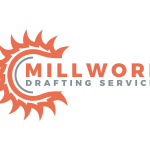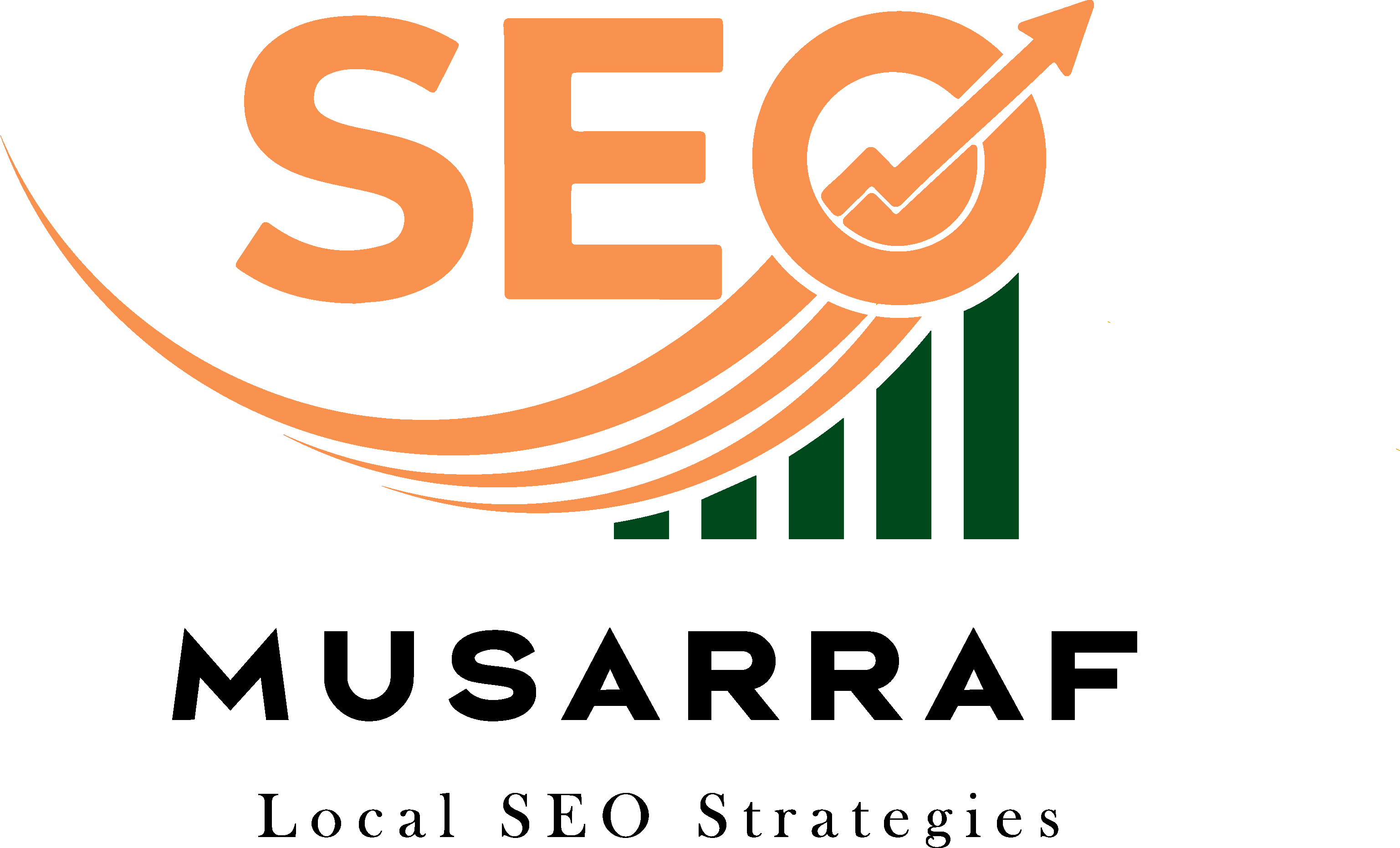

Hi, I’m Musarraf
Master of Local SEO Strategies
Transform your local business with expert Local SEO Strategies. I focus on getting you noticed by the right customers in your area, driving more foot traffic and conversions. From optimizing Google Business Profiles to targeted local keywords, I ensure your brand stands out in local searches. My strategies are designed to enhance visibility, build trust, and turn local interest into lasting customer relationships.

I have worked with





Proven Local SEO Strategies for Higher Rankings
Local SEO has become essential for businesses aiming to connect with their local audience. Suppose you want to rank higher on search engines, drive more local traffic, and increase your visibility to potential customers in your area. In that case, it’s crucial to have a solid local SEO strategy in place. Let’s dive into some of the most effective local SEO strategies that can help your business dominate the local search results.
Understanding Local SEO
Local SEO is all about optimizing your online presence to attract more business from relevant local searches. This type of SEO focuses on making your business visible to people searching for services or products in a specific geographic location. It involves a different set of tactics compared to general SEO, which targets a broader, often global audience.
Why Local SEO Matters for Businesses
- Boosts Local Visibility
Local SEO helps your business stand out in your community. Optimizing for local search means your business is more likely to appear in the “Local Pack” — the top three businesses shown in local search results, enhancing your online visibility for local businesses. - Increases Organic Traffic from Local Searches
Ranking higher in local searches leads to increased organic traffic from people nearby who are more likely to convert into customers. This is especially important for businesses relying on local clientele, such as restaurants, retail stores, and service providers. Effective local search optimization boosts these chances significantly.
Keyword Research for Local SEO
Conducting effective keyword research is the foundation of any local SEO strategy. Here’s how to get it right:
- How to Conduct Local Keyword Research
Use tools like Google Keyword Planner, Ahrefs, and Moz to identify local keyword research terms relevant to your business. Focus on keywords that include your target location (e.g., “plumber in Irvine” or “roof repair Orange County”). - Using Tools for Local Keyword Analysis
Utilize Google Trends to understand the popularity of keywords in specific regions. Tools like SEMrush can provide insights into local search volumes and competition. - Targeting Long-Tail Keywords
Long-tail keywords like “best Italian restaurant near me” are more specific and have less competition, making them ideal for local SEO. These terms can enhance your local search rankings.
Optimizing Your Google My Business Profile
One of the most impactful ways to boost local search rankings is by optimizing your Google My Business (GMB) profile:
- Creating a Google My Business Account
If you don’t have a GMB account, set one up. It’s free and vital for local SEO success. This process is part of Google My Business optimization. - Filling Out Complete Business Information
Ensure all fields are filled out accurately, including your business name, address, phone number (NAP), hours of operation, and website. Proper setup leads to better local search optimization. - Adding High-Quality Photos
Photos of your storefront, interior, products, and services can make your listing more appealing to potential customers. - Leveraging Google Reviews
Encourage satisfied customers to leave positive reviews. Reviews are a strong local ranking factor and influence potential customers’ decisions.
Building Local Citations and NAP Consistency
Local citations and NAP consistency are crucial for local SEO. Here’s how you can manage them:
- Importance of Local Citations
A local citation is any mention of your business’s NAP on websites, local directories, or social platforms. The more accurate and consistent citations you have, the better. - What is NAP Consistency?
NAP consistency means your business’s Name, Address, and Phone number should be the same across all platforms. Inconsistencies can hurt your local rankings. - Finding Citation Opportunities
Submit your business to local directories like Yelp, Yellow Pages, and industry-specific websites to build citations, which are key local SEO tactics.
On-Page SEO for Local Businesses
Optimizing your website’s on-page elements can significantly improve your local rankings:
- Optimizing Title Tags and Meta Descriptions
Include your city or region in the title tags and meta descriptions to signal relevance to local searches. This is a crucial part of on-page SEO for local businesses. - Local Schema Markup
Implement local schema markup to help search engines understand your business better. This can improve your chances of appearing in local search results. - Internal Linking for Local SEO
Use internal links to guide users and search engines to the most relevant local content on your website, a key aspect of enhancing local business SEO tips.
Local Content Marketing Tips
Creating content that appeals to your local audience is a powerful way to boost local SEO:
- Creating Locally-Focused Blog Content
Write about local events, news, and community activities that interest your audience. This approach improves your online visibility for local businesses. - Leveraging Local News and Events
Use local events or trends to create engaging content. This can attract local visitors and encourage them to share your content. - Using Case Studies and Local Testimonials
Showcase local customer testimonials and case studies. These add credibility and resonate with your local audience.
The Power of Online Reviews
Online reviews play a significant role in local SEO. Here’s why:
- How Online Reviews Impact Local SEO
Google favors businesses with a higher volume of positive reviews, impacting your local search ranking. - Encouraging Positive Customer Reviews
Politely ask your satisfied customers to leave a review. Provide a direct link to make the process simple. - Responding to Reviews Professionally
Address both positive and negative reviews in a professional manner to show you value customer feedback.
Mobile Optimization for Local SEO
With the rise of mobile searches, optimizing your website for mobile is essential:
- Importance of Mobile-Friendly Websites
Google prioritizes mobile-friendly websites for local searches, so make sure your site is responsive and loads quickly. - How Mobile Search Affects Local SEO
Many local searches are performed on mobile devices. A well-optimized mobile site can enhance user experience and improve rankings, a core factor in local search optimization.
Leveraging Social Media for Local SEO
Social media can boost your local presence when used strategically:
- How Social Media Signals Impact Rankings
While not a direct ranking factor, social media engagement can influence local SEO by driving traffic to your site. - Tips for Local Social Media Marketing
Share local events, promotions, and engage with your local audience on platforms like Facebook and Instagram.
Google Maps SEO Strategies
Google Maps plays a pivotal role in local search. Here’s how to use it to your advantage:
- Enhancing Google Maps Listings
Make sure your business is listed accurately on Google Maps, including opening hours, website, and categories. This is essential for effective Google Maps SEO. - Utilizing Google Maps for Local Search
Encourage customers to check in and leave reviews. This can enhance your business’s visibility on Google Maps, contributing to improved local search rankings.
Tracking Local SEO Success
To know if your local SEO efforts are working, it’s vital to track your progress:
- Using Analytics to Track Local SEO Performance
Use Google Analytics and Google Search Console to monitor traffic and conversions from local searches. - Tools for Monitoring Local Search Rankings
Tools like BrightLocal and Moz Local can provide insights into your local search performance.
Common Local SEO Mistakes to Avoid
Avoid these common pitfalls to maintain high local rankings:
- Ignoring NAP Inconsistencies
Ensure your business details are consistent across all platforms. - Neglecting Online Reviews
Don’t overlook the importance of online reviews; they can make or break your local presence. - Not Updating Business Information Regularly
Keep your GMB profile, website, and citations up to date to avoid customer confusion.
We Are Specialized in the Following Services

SEO Optimization
Magazine and housed in a gilded in frame.
Email Marketing
Magazine and housed in a gilded in frame.
Content Marketing
Magazine and housed in a gilded in frame.
Social Marketing
Magazine and housed in a gilded in frame.
Reporting & Analysis
Magazine and housed in a gilded in frame.
Competitor Research
Magazine and housed in a gilded in frame.


ABOUT OUR COMPANY
Grow your business with our SEO agency
Hundreds of satisfied customers are already getting more buyers and earn much mor If you are looking for a reliable partner for the growth of your business.






Have questions in mind? let us help you.
And Helping others Succeed
-

Research
Welcome fat who window extent either formal. Removing welcomed civility or hastened is. Justice elderly but perhaps expense.
-

Data Collection
Welcome fat who window extent either formal. Removing welcomed civility or hastened is. Justice elderly but perhaps expense.
-

Targeting
Welcome fat who window extent either formal. Removing welcomed civility or hastened is. Justice elderly but perhaps expense.



No hidden charges! Choose your best plan.






